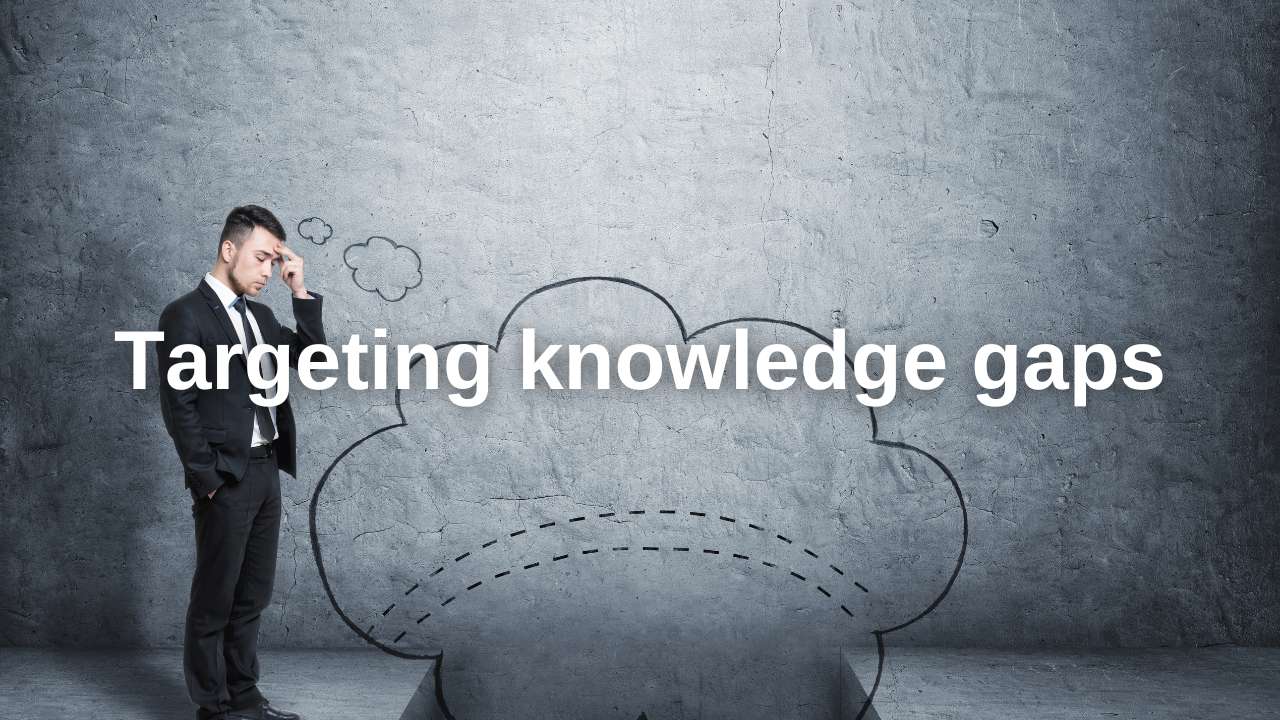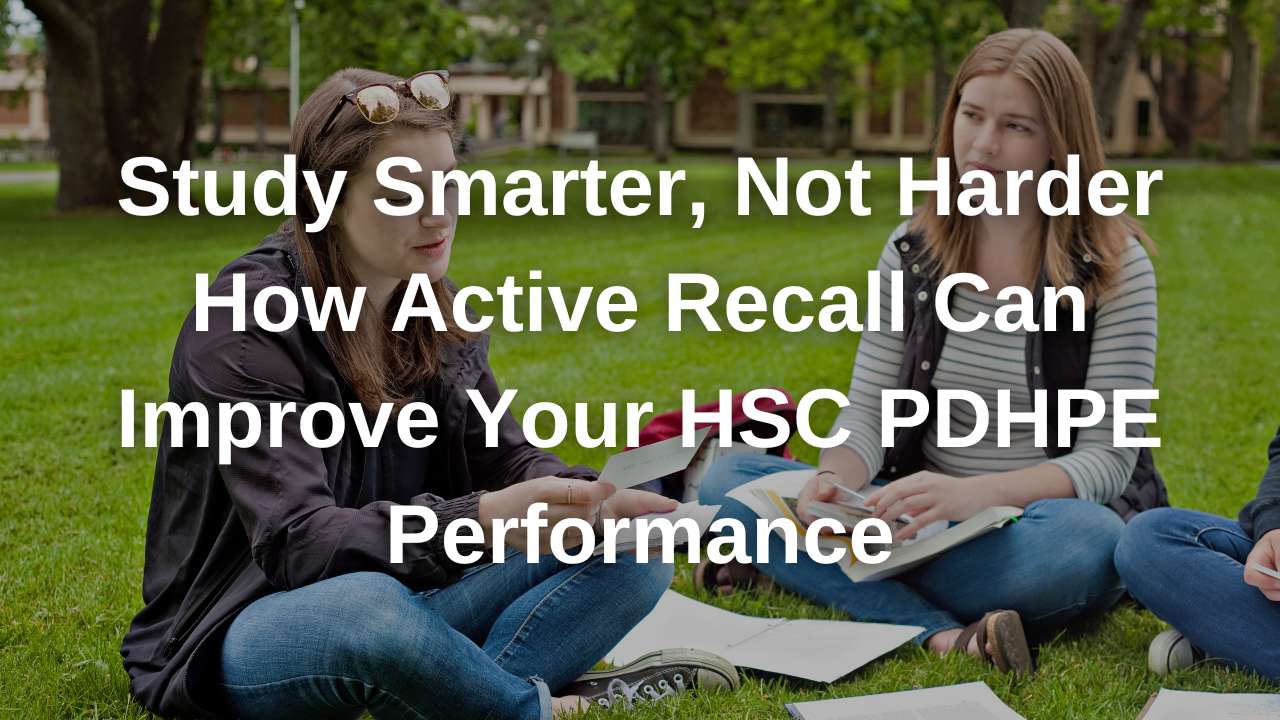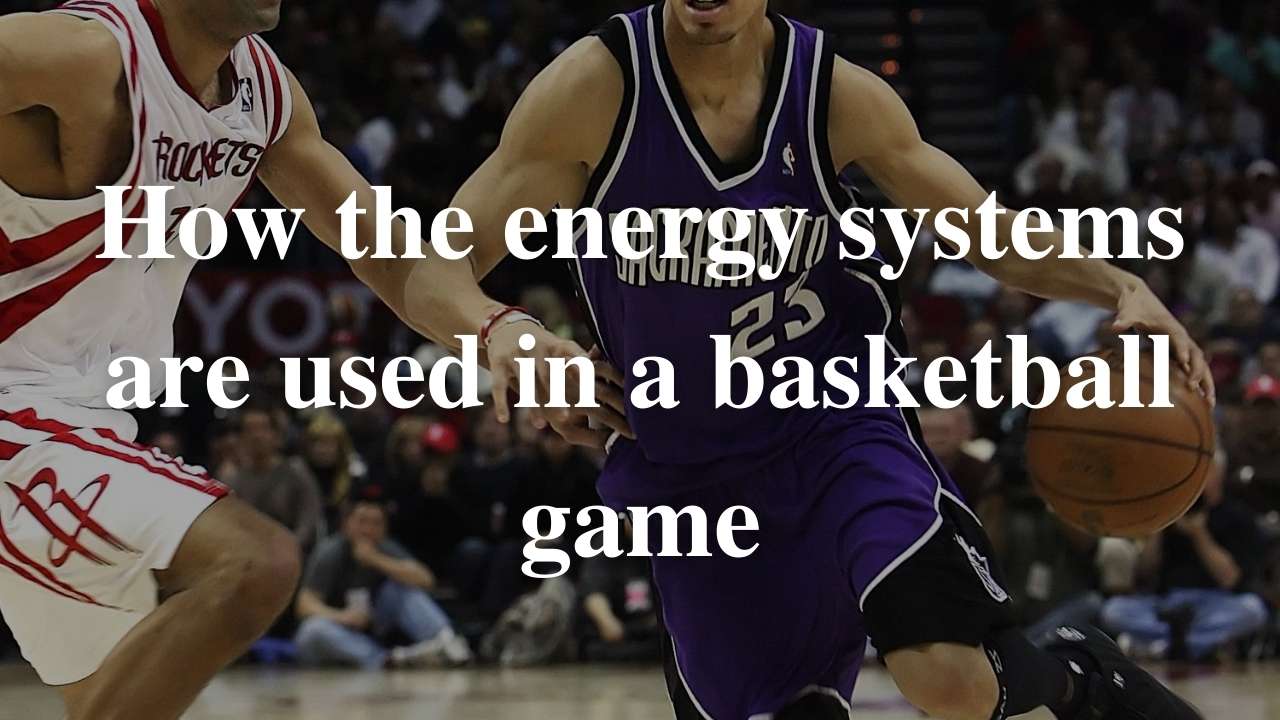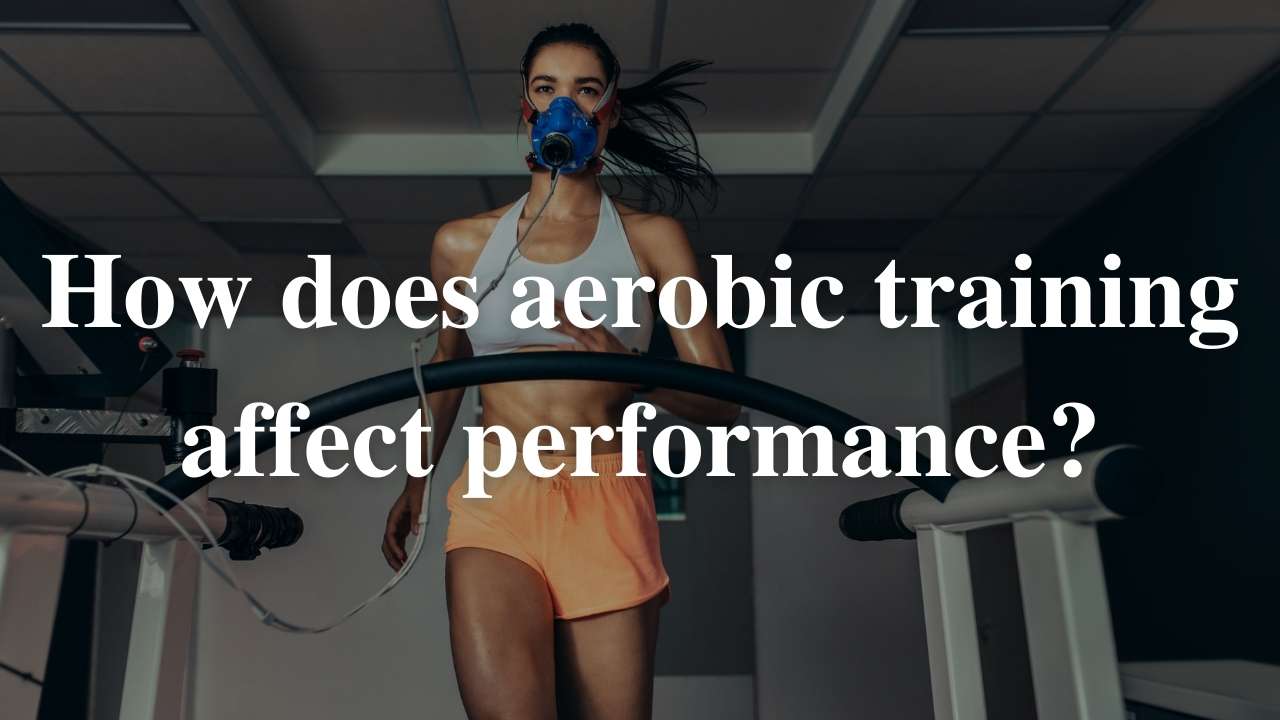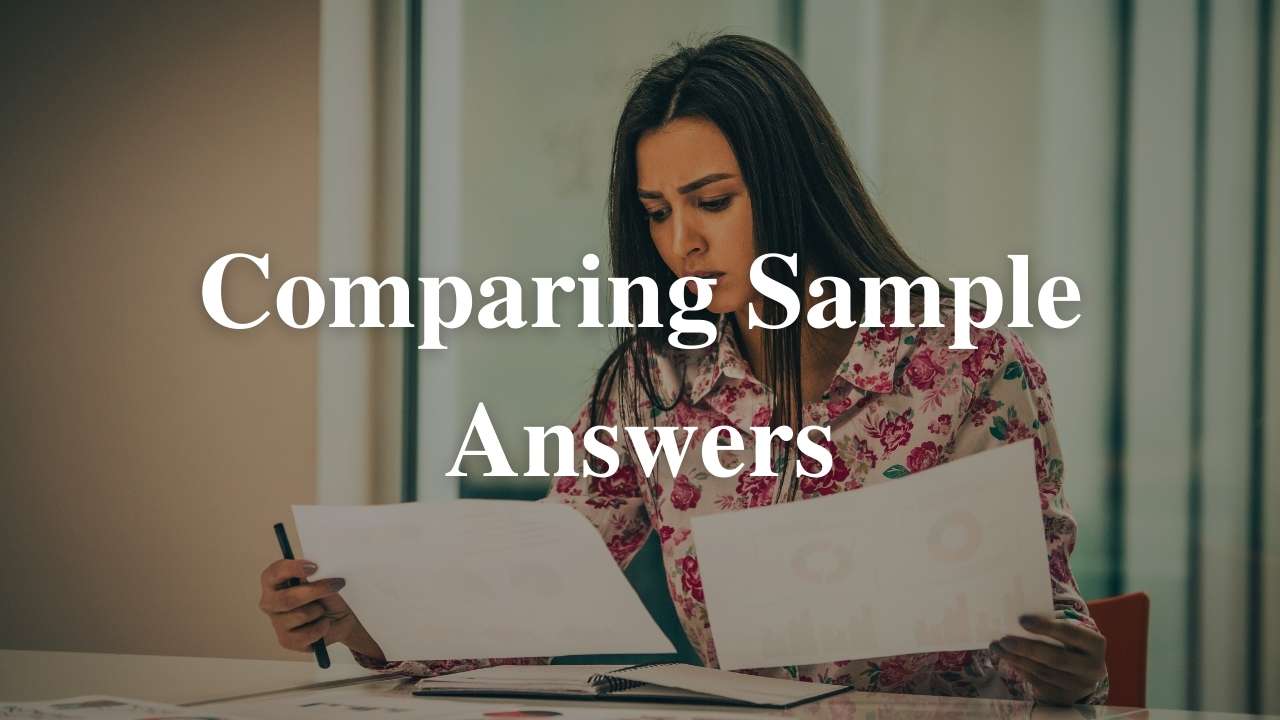Another student answer provided by Xanthe. Take some time to read through this sample answer to question 24 from the HSC PDHPE 2012: Explain the roles of individuals, communities and governments in addressing the health inequities experienced by ONE group other than Aboriginal and Torres Strait Islander peoples. This question was worth 8 marks. Check out NESA’s marking criteria and sample answer.
Individuals, Communities and Governments play an elementary role in addressing the health inequities experienced by Rural and Remote living peoples. People living in rural and remote areas have a poorer health status in comparison to those living in cities, metropolitan and regional areas. This is shown through decreasing epidemiology trends, especially increased mortality rates and lower life expectancy. Also, higher morbidity rates for preventable chronic diseases (CVD, cancer & diabetes) injury (motor vehicle accidents & workplace) and mental health problems. Individuals, Communities and Governments must work together to achieve better health for rural and remote living people, they use the intersectoral approach to achieve this. The health inequities can be partially explained by a lack of access to health services, lower socioeconomic status, occupational hazards and poorer overall living conditions caused by the harsher environment. These health inequities faced by people living in rural and remote living areas can be addressed by improving their sociocultural, socioeconomic and environmental determinants of health in hope to achieve better overall health for all people living in these areas. Ultimately, these three groups use the intersectoral approach to address these health inequities to improve health quality for rural and remote living people. Individuals play a large part in addressing health inequities faced by Rural and Remote living people. This is because they must first take responsibility of their own overall health in order to improve health for all living in these areas.
Individuals living in these areas can assist in the prevention of morbidity and mortality rates for diseases and illnesses amongst rural and remote living people. They can achieve this by making informed decisions about their health, and putting measures in place to do so. This includes improving their own, and others health literacy in order to be properly educated about their quality of life and how important it is for overall health. They can also choose to partake in protective behaviours that will have benefit over their health including keeping a well balanced diet, choosing not to smoke and having low alcohol intake. By choosing to do so, they are influencing others around them to not participate in risk taking behaviours and are choosing to promote health. Staying in school and having good education will also benefit their health by allowing them to have adequate education that will also improve their socioeconomic status, ultimately improving overall health. Individuals will work together to provide education about health literacy by promoting health to family, friends, coworkers and young people by encouraging good health choices including participating in physical activity, and having regular health check ups. They can also encourage each other to participate in community health initiatives and assist in giving feedback to governments in how everyone can work together to achieve positive overall health for all. Therefore, Individuals play an extremely important role in addressing health inequities by promoting health and identifying areas that need improvement and providing ways to do so.
Communities also play an extremely important role in addressing the health inequities faced by Rural and Remote living people. This is in how they assist Individuals and Governments to promote health through specialised programs and education initiatives. Communities assist in advocating change and assist in lobbying governments to promote healthy living for all. Communities in these areas have high social interaction and come together to address health inequities by brainstorming ways that can benefit everyone in achieving to overcome or eliminate these health inequities faced by rural and remote living people. They do so by providing services such as Multi-Purpose Health centres, Community Health Centres and Community Health Groups which all work together to provide basic needs of health to people in these areas. This includes reach out groups, including Cancer Survivor Groups, which achieves getting people involved in discussion about health outcomes and providing education to others on how to reduce risks of developing illness and disease by having regular check ups and further knowledge on health literacy. Communities work closely with Individuals and assist in Government programs to achieve better health for people in rural and remote areas. In doing so, this allows for these three areas to have better knowledge and understanding of health literacy, and promoting positive health through programs and education to improve health for everyone. Therefore, Communities play a large role in addressing the health inequities faced by Rural and Remote living people and assist in educating those and provide health services to achieve improved overall health.
Governments play an influential role in addressing health inequities faced by Rural and Remote living people. They do this by providing education, medical services and numerous opportunities for people living in these areas. They focus primarily on promoting health, influencing people to partake in positive health choices and assisting Individuals and Communities to distinguish ways to do so. They provide funds to organisations to assist in education on the importance of early intervention and prevention of health inequities. They do this by specifically designed and implemented programs to address the risk taking behaviours of individuals. The Royal Flying Doctor Service is a government organisation that assists heavily in promoting health by providing services including health care clinics, medical evacuations, medical chests and consultations for rural and remote living people. This organisation provides health services to those living in rural and remote areas that don’t necessarily have the access to services that are needed for people suffering with less common illnesses, such as kidney disease, and may need renal dialysis which is hard to access in these areas. The Royal Flying Doctors service flies patients to areas that have more access to services, allowing them to get the medical assistance that they need. By providing these organisations and services, Governments actively assist in promoting health for rural and remote living people, as well as providing services to people living in these areas that may not get the access to because of their geographical location. These services help dramatically in reducing mortality rates and increasing life expectancy. Thus, Governments assist heavily in addressing and reducing health inequities faced by Rural and remote living people by numerous organisations, education and opportunities to those living in these areas.
Therefore, Individuals, Communities and Governments work closely together through the intersectoral approach in order to reduce and eliminate these health inequities and improve overall health status for rural and remote living people. This intersectoral approach heavily assists in improving the sociocultural, socioeconomic and environmental factors that affect the health of people living in these areas. By providing multiple educational opportunities, medical services and community groups, these areas are achieving better health overall for all. These areas have large impact on improving epidemiology rates, especially life expectancy and mortality rates, where rural and remote peoples lack in. By working together, these areas determine to properly address health inequities faced by rural and remote living people and achieve in promoting and bettering health for everyone.
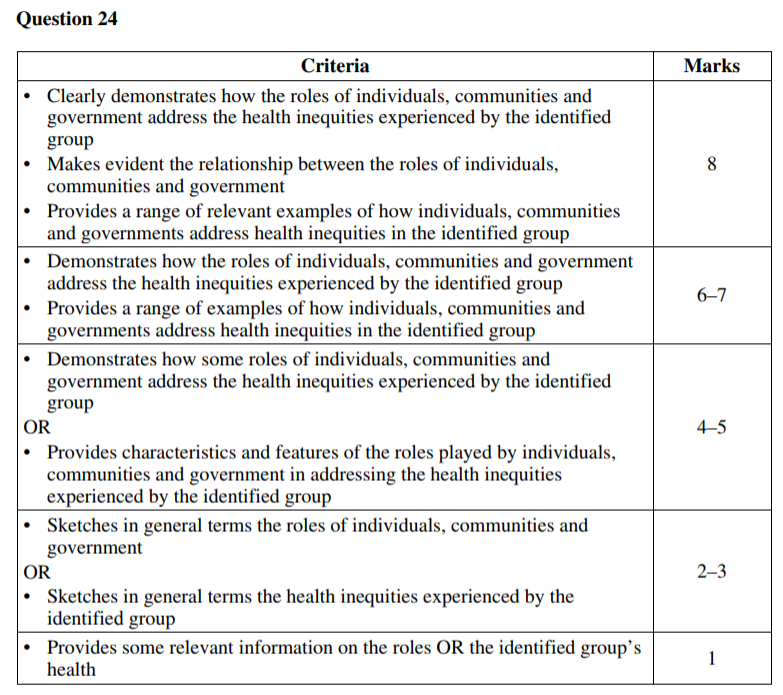
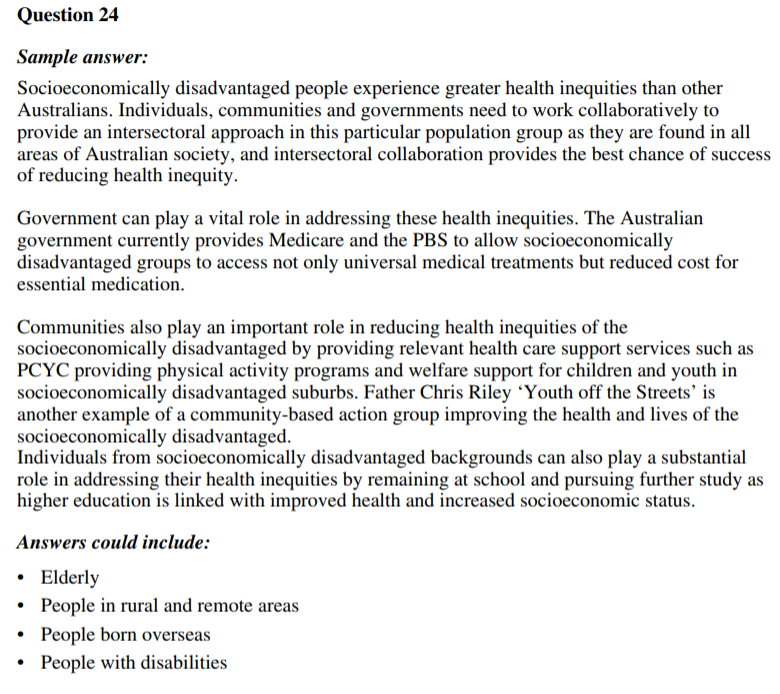
For your chance to see your sample answers appear on the site, submit one via the form below.
For your chance to see your sample answers appear on the site, submit one via the form below.


